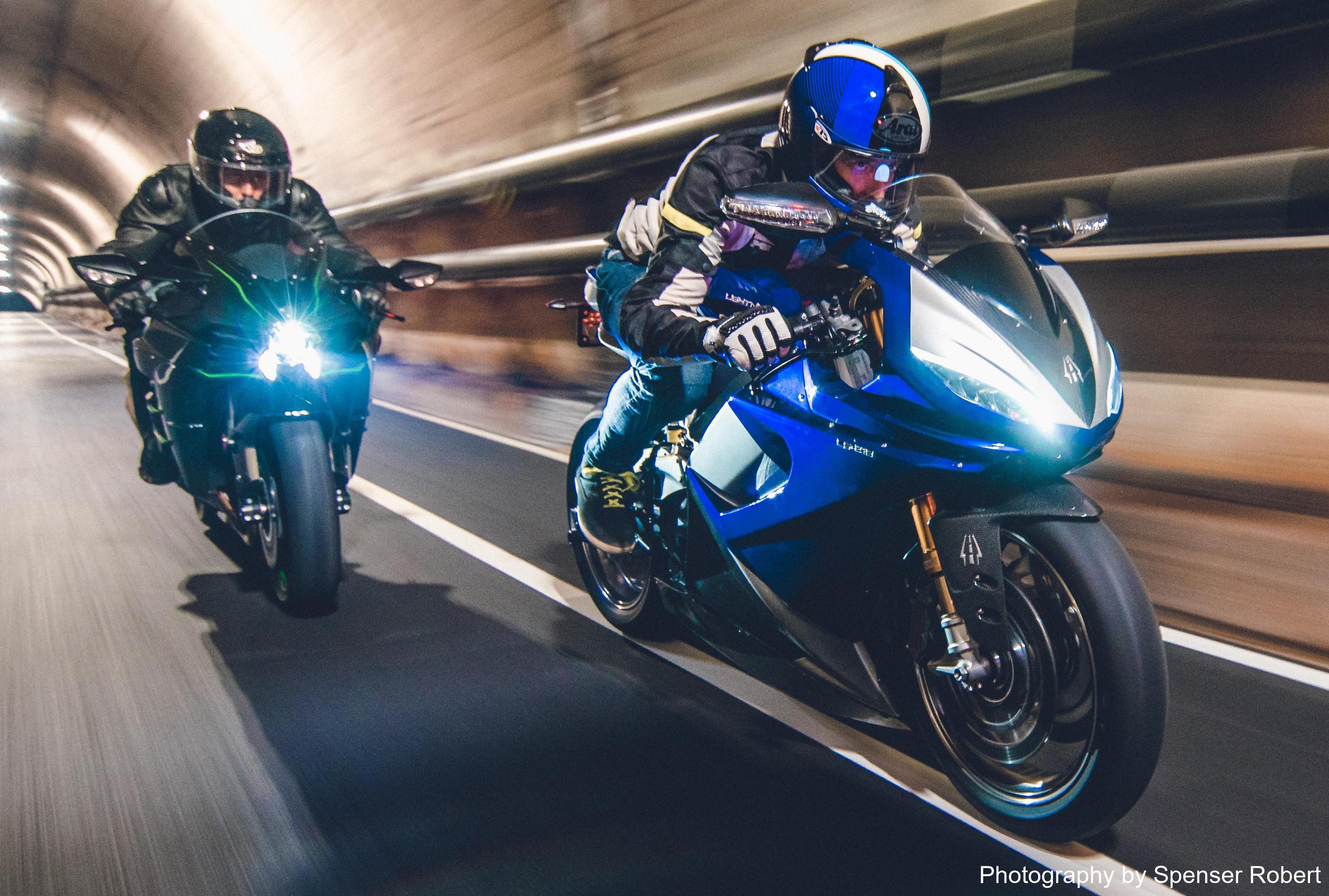
For those of us with long winters, we can’t wait to get out and ride now that it will be warming up soon! Here are a few simple tips for bringing your bike out of storage:
Battery – The battery is always a good place to start after your motorcycle has been in storage for a while especially if you didn’t have a smart charger on it. Newer bikes in particular have a lot of electronics on them that won’t function properly if they don’t receive the correct voltage. The easiest way to check your battery is with a multimeter. You’ll want to make sure your batter is putting out at least as many volts as it’s rated for. If it isn’t make sure it’s fully charged. If it still isn’t giving a good voltage reading after a full charge it may be time for a new battery. Next check the battery terminals for corrosion and the battery cables for wear or exposed wiring. The batter case should also be inspected for cracks, or deformations.
Leaks – Check the ground below where your motorcycle was stored as well as around the base of the engine and frame for any signs of leaks. If you notice any, trace them back to their origin. Gaskets and seals can sometimes shrink or crack during storage so you’ll want to make sure you’re not leaking anything before you head out to go riding.
Fluid Levels & Lubrication – After you’re done checking to make sure you’re not leaking anything you’ll next want to check to make sure all your fluid levels are topped off. If you didn’t change your fluids before you stored your motorcycle you’ll want to change them now. If your bikes been in storage for a considerable amount of time you may even want to consider doing a fluids change again even if you did do one before putting your bike in storage. Lubricating your bikes appropriate moving parts with the correct type of fresh grease is also a good idea. Check your owner’s manual for the correct type of grease and greasing points to be used.
Tires – Check your tire pressure to make sure your tires are properly inflated and that you don’t have any leaks. Check to make sure there are no cracks, bulges or other deformities and that you have a good amount of tread left. If you’re bike has been stored for an extended period of time in the same position your tires may have developed flat spots, make sure that your tires roll smoothly and that you haven’t developed any flat spots in them.
Brakes – Inspect your brakes and brake lines for wear. Roll your bike back and forth and test the braking to make sure both your front and rear break properly engage. Check your calipers and discs for wear as well. If they are warn past factory recommendations be sure to replace them before riding.
Lights & Signal – Be sure to test all your lights and signals. You don’t want to discover that you’ve a dead bulb by getting into an accident or being stranded at night without a headlight.
Steering & Suspension – Compress and release your front and rear suspension (when applicable) and make sure that it is compressing and releasing smoothing and not bottoming out. Then rotate your handlebars through their full range of motion making sure there are not binding or sticking anywhere.
Throttle and Clutch – Without starting your bike open the throttle all the way and then release it making sure it snaps back into place. Inspect all of your throttle and clutch cables for wear or damage. It is extremely important to check your clutch before riding as clutch plates have been known to stick together after long periods of storage. Before starting your engine pull back your clutch, shift your bike into gear and make sure that it rolls back and forth freely. If your bike is not rolling try rocking your bike back and forth with the clutch released and your bike in gear. This should hopefully get them apart.
Air Filter – Open up your airbox and clean out or replace your air filter. Even if you did this before storing the bike it’s a good idea to check it again as spiders and other bugs may have made their home there during the winter which can restrict air flow.
Exhaust – If you placed a barrier in your exhaust before storing your bike such as steel wool make sure you remove it before starting your bike. If not grab a flashlight and have a close look inside to make sure that no pests have made a come inside your cozy pipes while you were away.
Fuel – Gasoline can become stale overtime and will cause all sorts of problems with your engine if you try running it so it’s best to drain it and start with a fresh tank if you’re unsure. If it hasn’t been in storage too long and you used a fuel stabilizer before storing your bike you should be ok.
Spark Plugs – Before starting your engine it is a good idea to check your spark plugs as well. Properly functioning spark plugs are key to a healthy engine.
Go Time! – Alright so it’s the time you’ve been waiting for, the time to start your engine. There is a tendency amongst motorcycle riders to rev the engine after first starting, but you’ll want to avoid this at all costs after starting your bike for the first time after bringing it out of storage as the oil tents to drip down and settle in your engine and you’ll want to give it time to begin circulating oil before running into higher RPMs.
Take the bike out for a short ride and make sure everything is working properly and the bike feels good. Once you are confident, it’s time for a road trip!